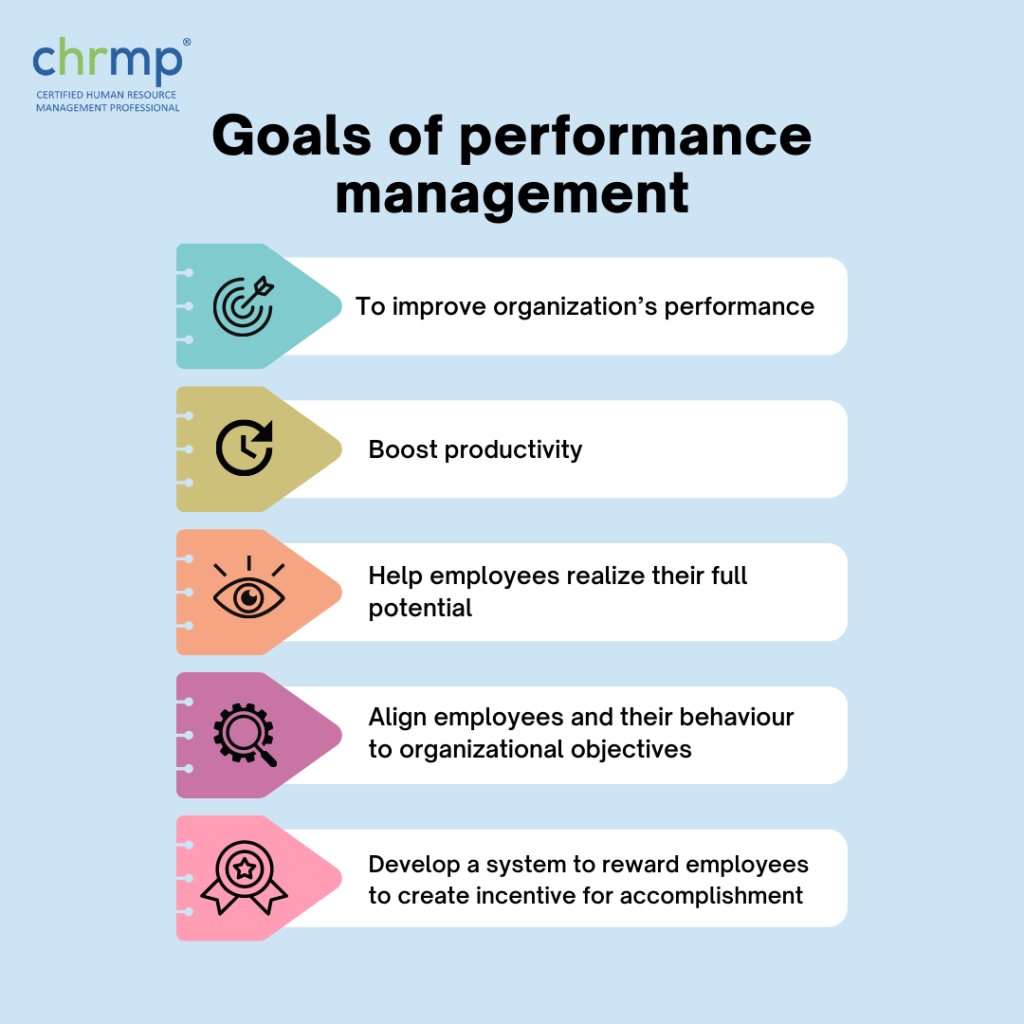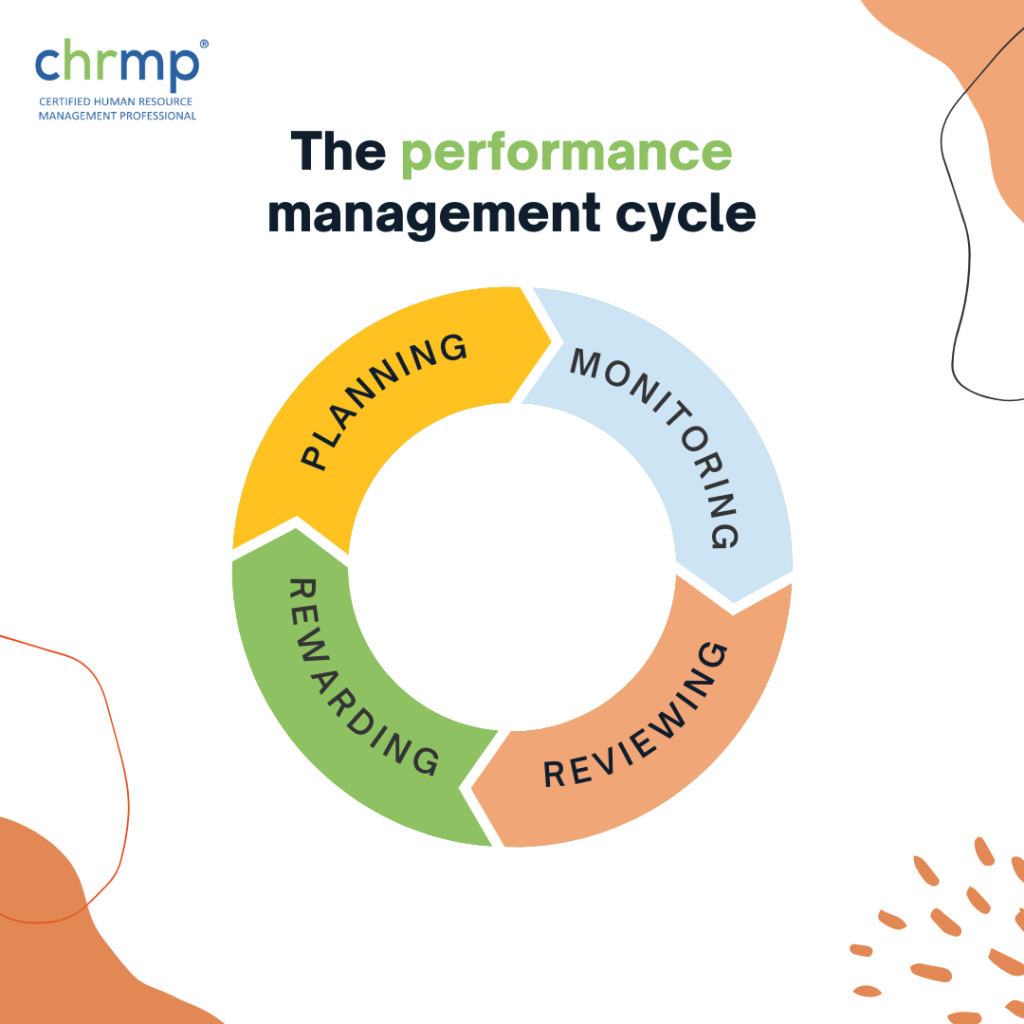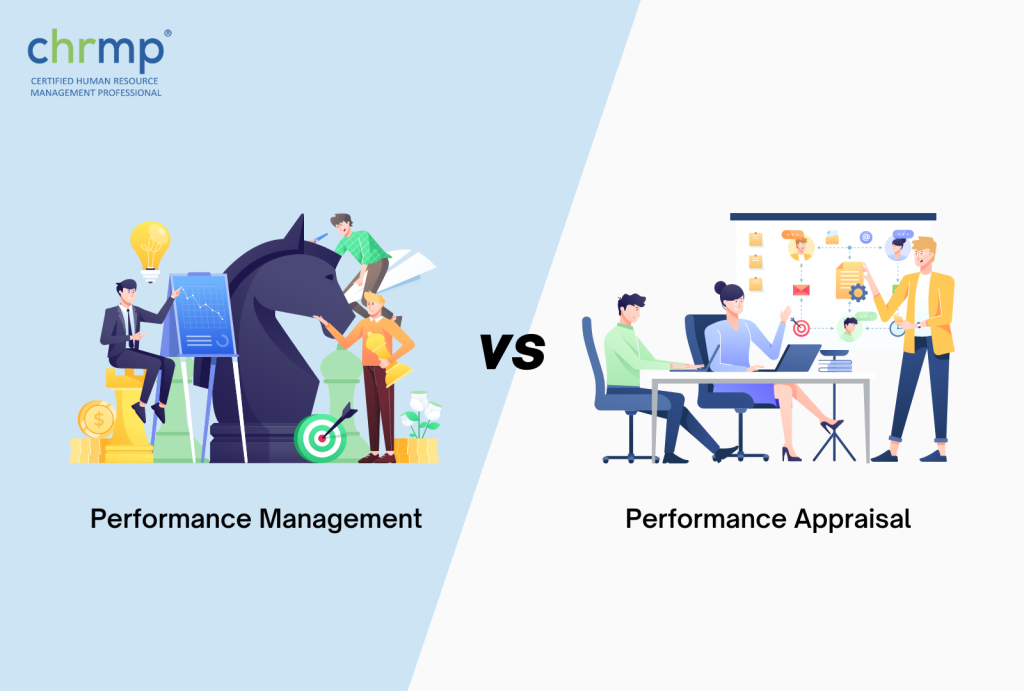

Performance management is an essential aspect of managing the workforce of your company.
When adequately executed, performance management strategies will help your employees use their talents to their fullest potential and help you bring out the best in your workforce to achieve organizational goals.
Performance management strategies in modern companies have significantly evolved, and conventional methods are quickly fading into the rearview mirror. They no longer consist of a mundane annual boardroom meeting where yearly targets were set and reviewed the following year.
The tasks associated with performance management have significant variations. They can be as explicit as getting messy employees to organize their desks or addressing more serious issues like helping a talented employee find the right direction.
To fully understand and take your performance management process to the next level, let’s dive into everything you need to know about performance management.
Performance Management is a continuous communication process between management and the workforce that aims to achieve high-performance levels from employees to fulfil the organization’s strategic objectives.

Performance Management is a process that occurs throughout the year, ensuring that the daily output of each employee is at optimum efficiency to accomplish the company’s goals effectively.
Michael Armstrong, in the Handbook of Performance Management, calls it a “continuous process of improving performance by setting individual and team goals which are aligned to the strategic goals of the organization, planning performance to achieve the goals, reviewing and assessing progress, and developing the knowledge, skills, and abilities of people.”
Quality performance management entails taking a strategic approach to developing ways to enhance employee talent and align them with the company’s goals while creating an environment where both employees and companies can thrive.
The importance of performance management goes beyond regular evaluations, appraisals and promotions; it is a critical aspect of business that can shape a company’s future. Let’s take a look at some of the reasons why performance management is so important:
As with any issue, early detection is crucial to prevent it from escalating into a huge problem. The continuous performance management process helps resolve matters arising from inefficient performance before they profoundly impact the company.
2. Improves employee engagement and boosts the morale of the workforce:
It has become increasingly evident that the conventional yearly performance appraisal system does nothing to increase or maintain employee engagement. Quality performance management systems are dynamic, and the ongoing process ensures that employees engage fully while consistently meeting company objectives.

When employees are fully engaged, it makes them feel invested in the organization, which leads to high levels of job satisfaction and boosts the morale of the entire workforce.
3. Increases employee retention:
A highly talented and motivated workforce is undoubtedly a tremendous asset to any company. But gifted employees won’t stay with the company for long if they are denied the room for growth and career advancements.
A strong performance management strategy will ensure that good work is appropriately recognized and rewarded, which will help you retain talented employees while providing them with the growth and career development opportunities they seek.
4. Sets realistic expectations and objectives aligned with the company’s vision:
It is essential to set expectations for the workforce to achieve organizational goals. Still, you must ensure that these expectations are reasonable to keep the company running at optimum capacity without compromising the well-being of employees.
Quality performance management strategies will help you define clear, realistic expectations that align with the company’s vision without overburdening employees.

The main goal of performance management is to create a strategy that facilitates the organization and all its departments to work together at optimum levels to accomplish organizational goals. But to sum it up, here are the five most important goals of performance management:
Performance management deals with improving the performance of all the departments in the company to achieve optimum output levels.
The ongoing performance management process helps identify performance issues in the company before they become more significant problems which help the company run smoothly and boost its overall performance.
2. Help employees realize their full potential:
A strong performance management strategy encompasses a complete system of goals, reflections and rewards that encourages employees to deliver their best work.
Performance management systems ensure that employees receive constant feedback on their performance, enabling them to fix their mistakes in areas where they are lagging and constantly improve by learning from those mistakes. This continuous improvement process helps employees realize their full potential and use their talents efficiently.
3. Boost productivity:
The benefits of a solid performance management system go beyond just employees and isolated departments. Enhanced performance can help achieve higher levels of productivity throughout the organization.
An effective performance management solution can enable all employees to update personal development plans and accomplishments regularly, which managers can use to gain insights and strategy in areas like workforce training and development, which all boost productivity levels.
4. Develop a system to reward employees by creating an incentive for accomplishment:
An effective performance management strategy develops a system of appraisals and rewards to ensure that good work gets appropriately recognized. Efficient rewarding systems incentivize employees to work hard and motivate them to keep improving their performance.

Effective reward practices will help develop result-oriented professionals who can thrive and succeed in performance-based environments. As a result, it is an important motivator and, if properly implemented, can significantly increase employee productivity levels.
5. Align employees and their behaviour to organizational values and objectives:
Every critical decision made within the company, every goal set and every employee hired will be influenced by knowledge and understanding of the company’s core values. Employees can start to align their behaviour to your organization’s values if they are clear, visible, and understandable.
In the wake of a tricky situation, the employee can refer to the company’s values for guidance. As a result, a unified workforce is rising to work towards a common goal.
The proper performance management system will also give employees autonomy and power over their goals while providing company goals transparency. Due to this transparency, employees can form and adapt their plans to organizational objectives, uniting the company and enabling progress.

The performance management cycle is an annual occurrence. The performance management cycle ensures employee evaluation throughout the year. This cycle which all employees go through, begins with goal-setting at the beginning of the year, followed by monitoring their progress, providing regular feedback and assisting them in developing to do better, and concluding with a formal evaluation.
There are four stages in the performance management cycle:
In the planning stage, performance goals and expectations are set for individuals/groups. It is beneficial to include employees while setting expectations and keep plans flexible to adjust according to requirements and objectives that might change along the way.
Goals and expectations must be set as S.M.A.R.T. (Specific, Measurable, Achievable, Relevant and Time-bound) to ensure suitable challenges to employees to promote growth while keeping the goals achievable.
2. Monitoring:
After goals are set and employees start working towards them, they need to be tracked actively by continuously measuring performance and providing feedback whenever necessary.
Regularly monitoring employee activities determines whether the strategies adopted to achieve goals work as desired.
3. Reviewing:
The third stage in the performance management cycle is usually implemented at the end of the year, as the final evaluation of employee performance is done in this stage.
The review stage allows managers to evaluate how efficiently employees’ achievements have met the objectives set at the beginning of the process.
Including employees in this process will help them understand how their work has contributed to the overall success of the company, areas where they need improvement, and motivation to keep improving.
4. Rewarding:
Rewarding is the final stage of the performance management cycle. It deals with appropriately recognizing and rewarding employees that have exceeded expectations with their performance and laying off those with continuous subpar performance.
Rewards and recognition may include a raise, promotion, time-off, awards, or simply praising them for their achievements.
Coming up with a tailor-made performance management strategy that seamlessly fits your company and elevates its overall performance can be pretty daunting. The following tips will be pretty helpful for developing a performance management strategy that works best for your organization:

As with any part of a company, performance management has its hurdles and challenges. However, specific performance issues that employees and managers face make performance management difficult and hinder the company’s sustainable growth.
To understand the challenges faced by managers while developing performance management strategies, let’s take a look at some areas where the process can go wrong:
The process must encompass organizational goals and the company’s overall business strategy to obtain the desired results from your performance management strategy.
A common reason managers fail to get the process right is relying on a ‘cascade process that leads to a lack of focus among employees. Having too many goals lined up at once will most likely cause the employees to get confused and feel inefficient and unaligned.
2. Inefficient System of Rewards and Recognition:
Giving employees a well-deserved pat on the back for a job well done is critical to promote quality performance and keeping employees engaged and motivated. That being said, employee rewards and recognition are one of the most significant missed opportunities for managers.
In today’s fast-paced industrial world driven by profits, it’s pretty standard for employees to feel undervalued and unappreciated, even when they exceed expectations.
3. Lack Of Meaningful Feedback At The Right Time:
Failing to deliver proper feedback to employees as soon as you have one can cause significant damage to your organization’s employee morale, engagement and, eventually, your company’s overall performance.
Waiting too long to give feedback can develop feelings of disappointment, confusion and frustration and lead to disengagement among employees, as they might get demotivated, leading to low productivity.
A company’s ability to adapt to change is crucial to future success. In the dynamic and ever-changing industrial landscape, new trends in the field of performance management keep emerging, each equipped with much better methods of managing performance.
The days when performance management was equated with an annual boardroom meeting where goals were discussed and plans developed have long gone by.

Present models have evolved to effectively accomplish organizational goals while also fulfilling the desire of employees to be seen as uniquely talented individuals instead of mere workers.
Performance management is well on its way to getting a complete revamp. For example, in the future, performance management systems will focus more on setting goals that encompass organizational requirements as well as the personal ambitions of employees. Strategies will focus more on developing employees individually instead of differentiating among most employees.
Companies might stop relying on performance evaluation data as a crude metric for determining compensation and start linking them more comprehensively at performance’s high and low ends.

Many people switch up the terms’ performance management’ and ‘performance appraisal,’ but they’re pretty distinct. Here are the most prominent differences between performance management and performance appraisal:
| PERFORMANCE MANAGEMENT | PERFORMANCE APPRAISAL |
| Focuses on spending time and resources on employees to ensure better performance for the future to help the company achieve its goals. | Evaluates and provide feedback on the previous performance of employees. Does not develop strategies for improving performance in the future. |
| Guides employees on their path to improvement in the future. | Evaluates previous mistakes of employees and present areas where they could have done better. |
| A continuous, ongoing process becomes a part of the daily routine of employees and managers. | Takes place annually or twice a year. |
FAQ: What is performance management and why is it important in the workplace?
Answer: Performance management is a systematic approach to managing and improving employee performance to achieve organizational goals. It involves setting clear expectations, providing feedback and coaching, conducting evaluations, and offering opportunities for growth. Performance management is crucial in the workplace because it enhances employee engagement, promotes accountability, and aligns individual efforts with the overall objectives of the organization.
FAQ: How can performance management benefit employees?
Answer: Performance management benefits employees by providing clarity regarding job expectations and performance standards. It offers opportunities for skill development and career growth through regular feedback and coaching. It also helps in identifying and addressing any performance gaps or challenges, ensuring that employees have the support they need to succeed. Ultimately, performance management contributes to employee satisfaction, engagement, and personal development.
FAQ: What are the key steps involved in the performance management process?
Answer: The performance management process typically includes several key steps. It begins with setting SMART (Specific, Measurable, Achievable, Relevant, Time-bound) goals and objectives. Ongoing feedback and coaching are provided throughout the performance period. Regular check-ins and performance evaluations are conducted to assess progress and identify areas for improvement. Recognition and rewards may also be given to acknowledge exceptional performance.
FAQ: How can organizations overcome challenges in implementing performance management programs?
Answer: Implementing performance management programs can face challenges, but there are ways to overcome them. Clear communication about the purpose and benefits of the program is crucial. Ensuring that managers and supervisors receive proper training on how to provide effective feedback and coaching is also important. Additionally, organizations should promote a culture of continuous improvement and create a supportive environment that encourages open dialogue and learning.
FAQ: How can performance management contribute to organizational success?
Answer: Performance management is instrumental in driving organizational success. By aligning individual goals with organizational objectives, it ensures that employees are working towards the same outcomes. It helps in identifying high performers, addressing performance issues, and allocating resources effectively. Moreover, performance management fosters a culture of accountability, engagement, and continuous improvement, leading to increased productivity, employee satisfaction, and overall organizational success.
In conclusion, performance management plays a crucial role in maximizing the potential of employees and driving organizational success. It encompasses various processes and strategies aimed at aligning individual and team goals with the overall objectives of the company.
By providing clear expectations, regular feedback, and opportunities for growth and development, performance management fosters a culture of accountability, continuous improvement, and employee engagement.
C.H.R.M.P. (Certified Human Resource Management Professional) is a leading H.R. certification institution that continuously strives to expand knowledge and value in the H.R. field through world-class certification courses. Want to become a top H.R. Executive and climb up the corporate ladder? Get your certification course and make your mark. Join our global community of leading H.R. professionals today!
© 2007-2025 CHRMP| All Rights Reserved | Powered by Ripples Learning & Research Private Limited
